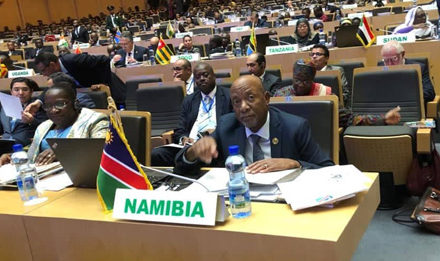
Construction industry still hampered by lack of regulation

The Construction Industries Federation of Namibia (CIF) is concerned that many government projects over the last years were repeatedly abandoned before completion. Futhermore, the quality of the workmanship on some of the projects is regarded as very poor and below desired standards.
Chief Executive of the Federation, Ms Bärbel Kirchner, said it is important that prospective clients of builders and contractors exercise caution before starting a construction project seeing that there is no statutory regulator for the industry, like a Construction Council. Given this lack of control in the construction industry, she advises clients only to use contractors that are members of the CIF since all members have to comply with the Federation’s Code of Conduct.
Without a regulatory body, there is no organisation with the mandate to monitor the performance of contractors. With the absence of such a body, buyers of building and construction services – mostly government authorities — are not in a position to evaluate tenders accurately before awarding them.
Repeatedly since 2006, the CIF has lobbied the relevant government authority to establish a Construction Council. According to the Federation, this will prevent tenders awarded to contractors that do not have the experience to do the job and are therefore not able to complete a project.
The authority of a Construction Council will also be able to block the exploitative behaviour of so-called tenderpreneurs, – usually well-connected individuals that obtain tenders at hugely inflated prices, and then farm out the work to smaller contractors.
Unscrupulous constractors who merely change their name after abandoning a project, also will be stopped before they can conn other clients. Such shell companies will be barred from participation in new tenders.
“Without an appropriate regulatory body in the construction sector, the scope for fraudulent and corruptive practices is much bigger, which can lead to a very inefficient public procurement system,” commented Kirchner.
With a Construction Council in place, all businesses operating in this sector will have to be registered with the council. Details that would have to be disclosed are ownership, citizenship, previous work undertaken; turnover and cash flow, and skills and size of the workforce. Essentially, the criteria will be determined by the council itself. Based on this, companies would be categorised and projects could be sized to match the project requirements to the contractor’s ability.
“We really cannot understand why after 17 years of lobbying our government, there is still no council. We were very hopeful after the pledge made by the government at the Namibian Investment Summit in 2019, organised by the High Level Panel of the Economy, that by the end of the financial year; i.e. 28 February 2020, the bill would have been tabled in Parliament and eventually promulgated.”
“Not having a council is essentially a very wasteful use of government resources, and ultimately taxpayers’ money as unqualified businesses are getting contracts.”
“At the same time, the procurement processes are incredibly long and therefore very costly. With a register of prequalified contractors, a lot of bureaucracy can be cut out. This saves everyone’s time – both the time of civil servants as well as contractors.”
“As a stakeholder in the construction sector, we want to see that the sector is optimally regulated. This is in the interest of the development of the country and of our sector. Ultimately, [it] will help to better utilise scarce financial resources. However, in the absence of that, we want to call everyone that is buying or funding building and construction services, to establish first whether the service provider is a member of the CIF,” she advised.













































